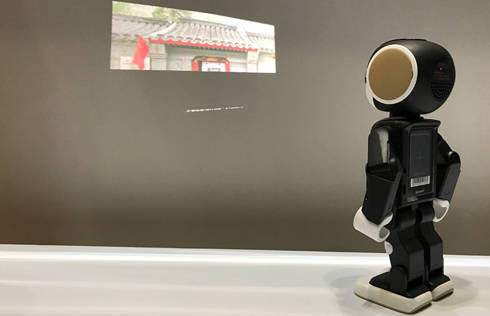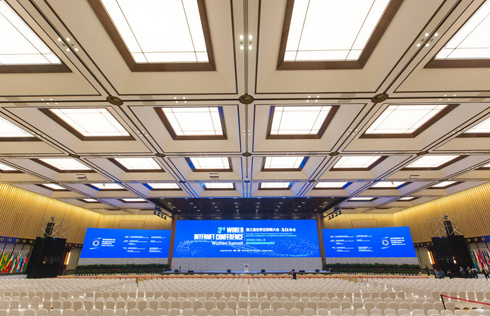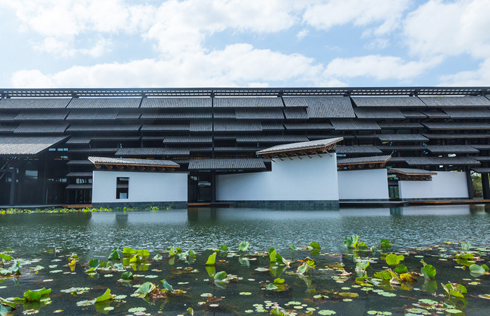Heart of a water town
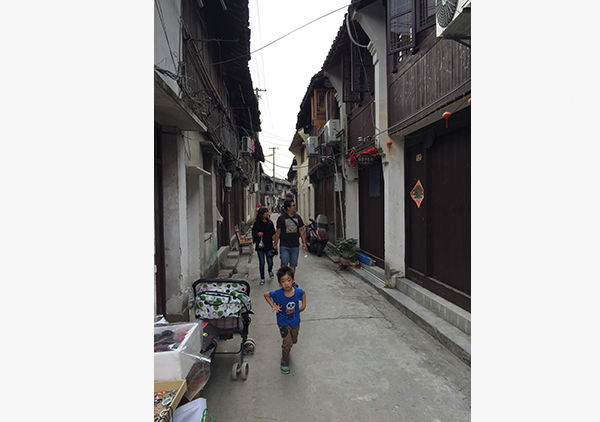 |
|
Nanzha, the southern area of Wuzhen in Zhejiang province, unlike other parts of the water town, still keeps its original look. [Photo/China Daily] |
A visit to Wuzhen's sleepy south side is a dip into real life rooted in a time gone by, Yang Feiyue discovers.
For those who want to see a slice of the original Wuzhen, its southern section Nanzha is the place to go.
The famous water town in Zhejiang province's Tongxiang city is best known for its western (Xizha) and eastern (Dongzha) areas that have been highly commercialized. But Nanzha largely retained it original feel.
It also offers free entry.
"Nanzha was the first place that enjoyed development in Wuzhen after the Taiping Rebellion (1850-64)" says Zhou Qiankang, a senior scholar on local history.
The first migrants moved there and made bamboo products for a living. Some were shipped to Beijing for royal families through the Beijing-Hangzhou Grand Canal.
More than 130 well-known shops were established and offered dining, local specialties, alcohol, fruit and dyed clothing, Zhou adds.
Now, most are gone. The streets are today lined with aging two-story buildings made of wood and brick.
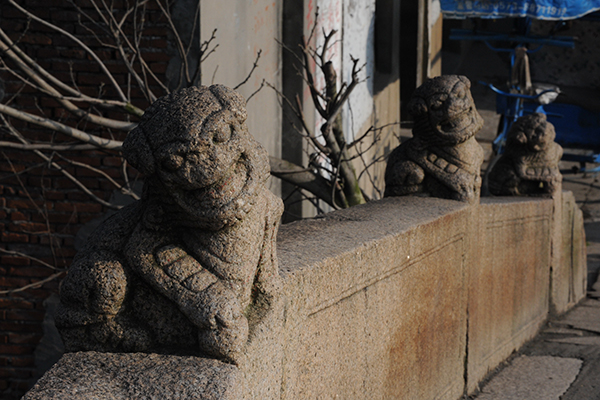 |
|
Nanzha, the southern area of Wuzhen in Zhejiang province, unlike other parts of the water town, still keeps its original look. [Photo/China Daily] |
I followed a tortuous back road across a gravel-paved square and past a few bungalows that led to a long street.
Workers are doing renovations near the entrance to the old street, which was very quiet. Many doors were closed during my visit, and a few elderly people sat idle and relaxed.
Most of the buildings are inhabited by locals, says Jiang Yongfen, a 57-year-old who married to her husband there when she was 21.
Jiang has lived here ever since.
"It's comfortable here, with the lake and fresh air," she says.
There are more visitors thanks to Wuzhen's recent prosperity, she says, but the downside is that the price of food has gone up.
The retired woman runs her own grocery across from her house. That and her family chores make her days full.
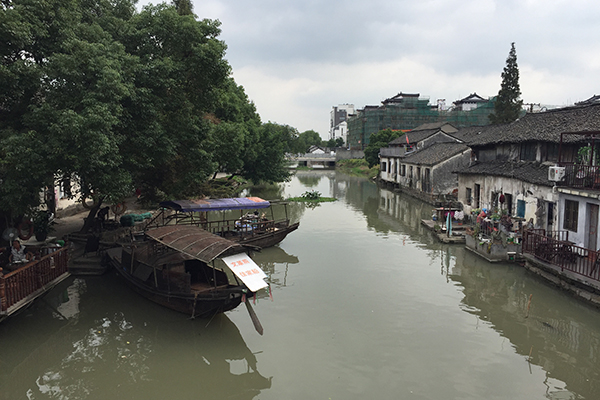 |
|
Nanzha, the southern area of Wuzhen in Zhejiang province, unlike other parts of the water town, still keeps its original look. [Photo/China Daily] |
Small restaurants, snack stalls and shops selling liquor, souvenirs and costumes appear on both sides of the street. Peddlers mostly sit out front and hawk their products or services.
The business area sees smaller crowds than those in Xizha and Dongzha, but still enjoys good traffic. I saw many visitors leisurely strolling around Nanzha, mostly sightseeing and taking pictures.
Some locals have picked up a tricycle business on their own. They tout their services and promise to take tourists around the old street, explaining local history and anecdotes along the way.
I paid a visit to a building that dates to the late period of Emperor Guangxu of the Qing Dynasty (1644-1911). It got my attention because of a small board that invites entrance for 1 yuan (14 US cents).
The building once belonged to Zhang Houtang, a merchant who shot to fortune before experiencing a crash.
The place features a weathered but still-imposing brick gatehouse and delicately carved red wooden windows that have survived the passage of time.
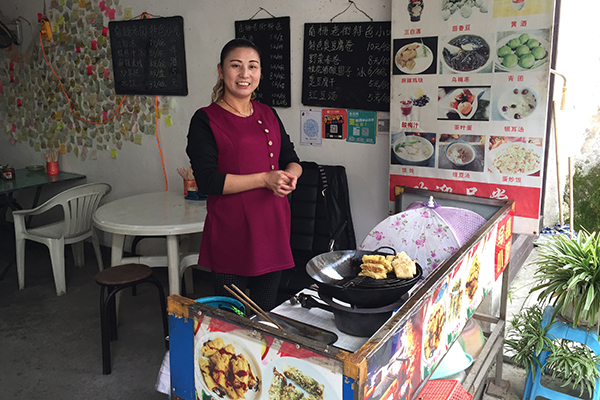 |
|
Wu Dongyun sells stinky-tofu rolls and other local food at a small diner in Nanzha. [Photo/China Daily] |
The owner, Wu Dongyun, greeted us with a big smile.
"Many guests say they prefer here for not being commercialized, although it might not be as neat as Xizha," Wu tells us.
Wu originally came from Anhui province. She moved to Nanzha with her husband 21 years ago and has witnessed the changes there.
She first helped her husband with his painting business in nearby villages.
"Unlike the well-paved streets everywhere now, roads were all bumpy and got muddy on rainy days, and sometimes our bicycle would sink and get stuck in the mud," she recalls.
"It was tough work, and I had to spend the whole day polishing furniture before paint could be applied."
Later, Wu went to work at a stinky-tofu restaurant in Xizha when the local government remodeled it and opened it to the public in 2006.
"Business was bustling," she says.
When her young daughter started school, Wu started her own business in front of her rented house, which is five minutes' walk from her current shop.
It didn't last long.
"My neighbors couldn't stand the cooking fumes and the noise, so I had to find another place."
She then rented the government-owned place and cooked simple food for the office workers.
Her monthly rent is 600 yuan ($89). She could rake in 500 yuan on good days but fewer than 100 yuan when things are slow.
She spends about 12 hours every day in her shop.
"I can't afford to lose any business opportunities," she says.







